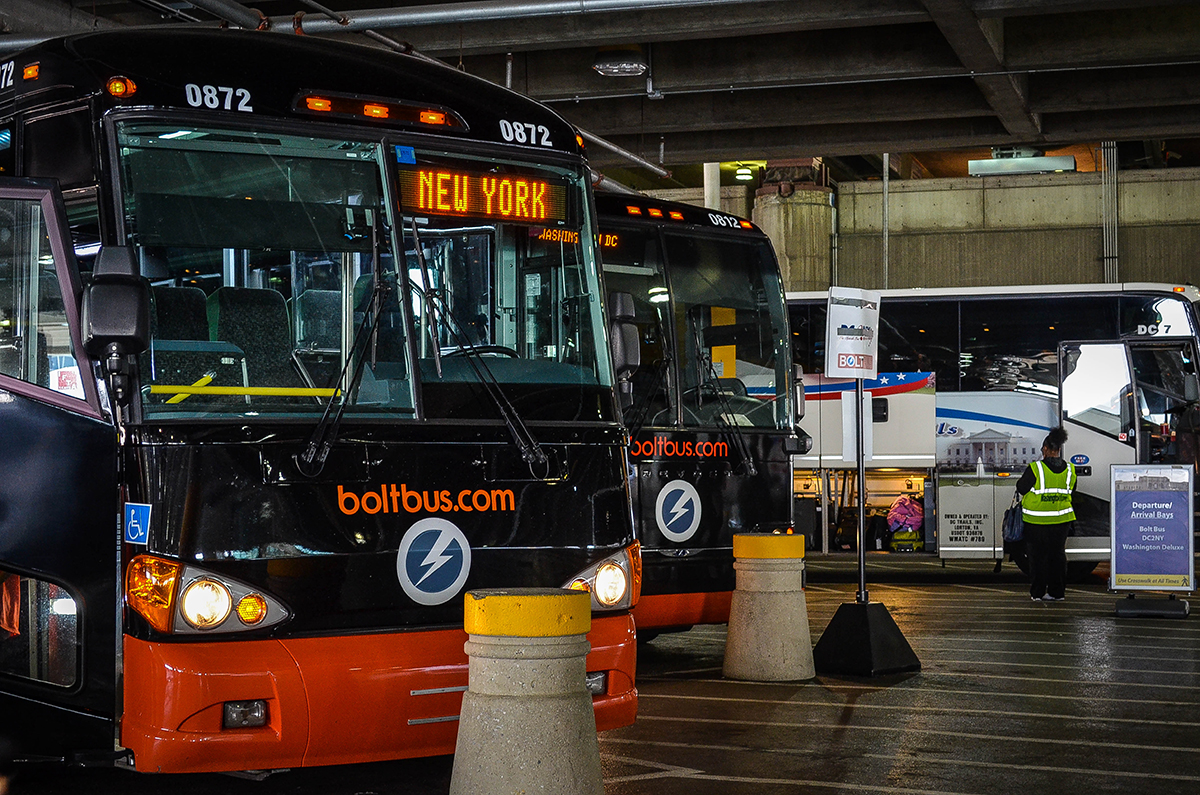Exploding Bolt Buses and the Fragile Reputation of Curbside Carriers
Having noted that the explosion of a Bolt Bus on the Mass Pike in Newton Monday resulted, incredibly, in no injuries, we can address a secondary concern: the threat such high-visibility disasters pose on the fragile reputation of the burgeoning curbside bus industry.
Around 5 p.m., a Bolt Bus traveling from New York to Boston exploded into flames near West Newton. The footage was caught on camera, providing a dramatic, horrifying visual to anyone who has ever sat on one of those vehicles. Amazingly, though, Greyound, which owns Bolt Bus, said in a statement that no one was injured and all were able to retrieve their belongings. The only casualty, it would seem, was the reputation of Bolt Bus.
Bolt bus explodes on the Mass Pike eastbound in the West Newton section of Newton #wcvb pic.twitter.com/oRXWcRjgZG
— russnelligan (@russnelligan) May 11, 2015
In the past decade, low-cost curbside carriers operating between major cities have grown hugely popular, especially with a clientele Time described as “budget-minded, tech-crazed, urban-dwelling young people.” These bus lines, like Bolt and Megabus, offer a sort of Jet Blue-like customer service, including amenities like free WiFi, and the approval of most mothers who would never let their newly independent millennial step on board a Fung Wah bus.
Indeed, way out on the other end of the reputation spectrum sit the Chinatown buses. Though they really led the way on the cheaply-operated curbside pickup model of bus travel, lines like Fung Wah have earned seedy reputations thanks to several high profile incidents as well as years of smaller anecdotal experiences. Indeed, when Federal regulators shut down several of the lines because of safety violations, the internet gathered together to share individual memories of their worst Fung Wah experience. (This writer once witnessed two tween bros light up a bong in the back seat of the Fung Wah to New York. #FarewellFungWah.)
Bolt Bus and Megabus have likely benefited from the crackdown on their cheap Chinatown competitors. But they also need to heed the cautionary tale and make sure they emphasize safety, not just cost and convenience, as a key part of their brands. Prior to the recent boom, bus travel had mostly fallen out of favor, seen by many as an unreliable, sketchy form of transit. Its reputation as a cheap, reasonable alternative to Amtrak is a new one, and thus it’s still fragile. Viral footage of Bolt Buses exploding in Newton do very little to help it set in.
Granted, this isn’t the first incident of its kind, and we shouldn’t overstate the impact of any single incident. Megabus had a fatal crash outside Chicago in August 2012, for instance. But each time one of these things makes the news, young adults across eastern seaboard receive texts from their mothers that read, “Never get on one of those again!!!”* Lose the moms of millennial, and eventually, you’ll lose the millennials, too.
*Actual text the writer of this blog received yesterday.



